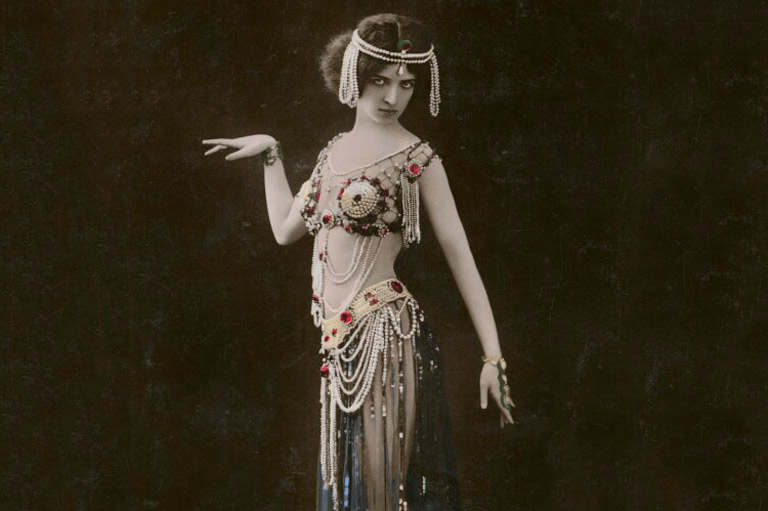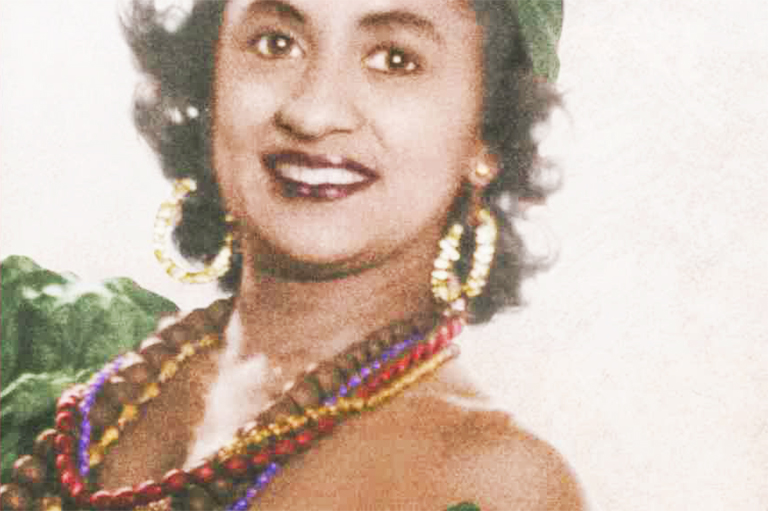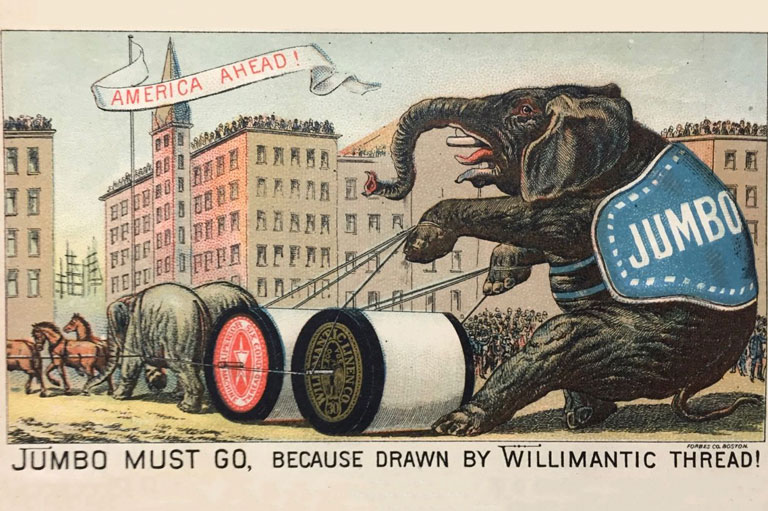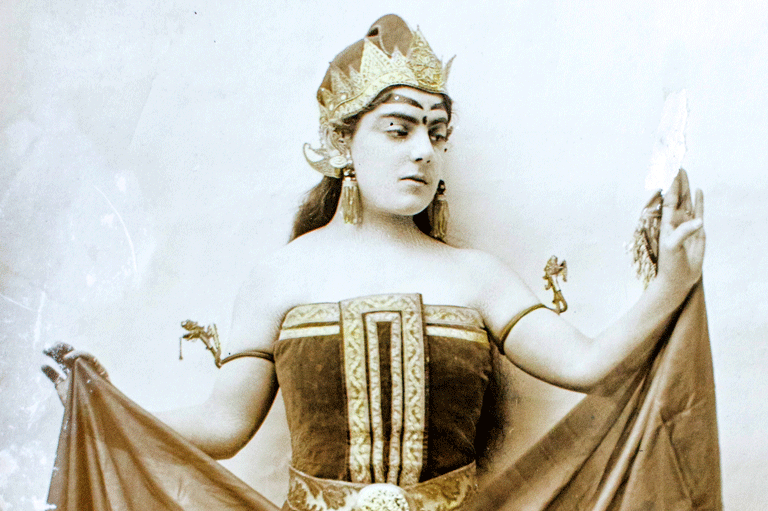Hard Times in the Maritimes
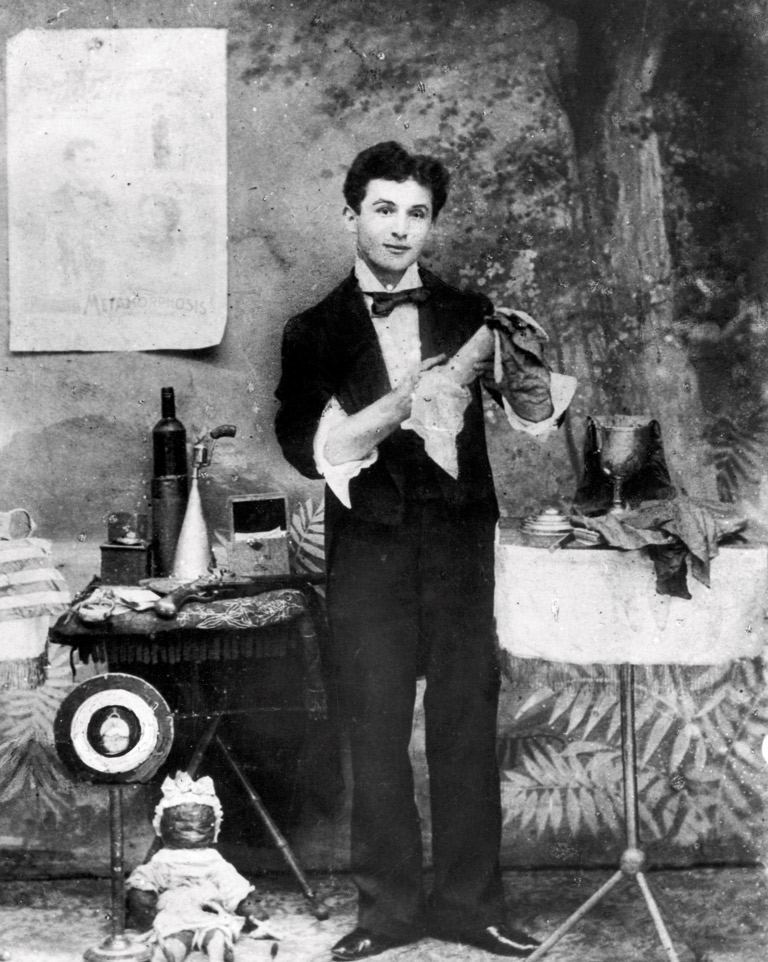
Harry Houdini watched helplessly as the sheriff seized his props for non-payment of debts. Disappointment and frustration turned to despair as his lovingly crafted illusions disappeared into a foggy night in the summer of 1896.
Farewell, Voodoo Temple of Bra-ha-ma! Your secrets will forever remain a mystery in the drafty stone cellar below a police lock-up. So long Cremation of Floribel! Your troubles have come to a merciful end here in Canada. For Harry Houdini and his wife Bess, there was no such luck. The young couple was broke and stranded in Nova Scotia.
What very few people realize is that early in his career, long before he became famous, Harry Houdini toured the Canadian Maritimes as a humble magician’s assistant. One Maritime community even holds the distinction of hosting the very first international performance headlined by Houdini.
Prior to touring Nova Scotia and New Brunswick, Harry and Bess (Wilhelmina Beatrice Rahner) had been serving a gruelling vaudeville apprenticeship. The couple often performed their illusions up to twenty times a day at dime museums. They also had a stint with a travelling circus, with Bess performing as a singing clown while Harry worked the sideshow and occasionally posed as the circus wild man.
After touring New England with a fledgling variety show that went bankrupt, twenty-two-year-old Harry Houdini and his wife jumped at a chance to join a professional theatre tour through the Maritime provinces. The Marco Magic Company was bankrolled by Edward Dooley, a Connecticut-based performer who went by the stage name “Marco the Magician.”
The first stop on the Maritime tour was Yarmouth, Nova Scotia. On May 28, 1896, Marco and his assistants, including Harry and Bess Houdini, prepared for two shows at Yarmouth’s Boston Marine Hall. Upon their arrival, Marco and the Houdinis realized they were up against some formidable competition. Rufus Somerby, sixty-three, a veteran vaudeville manager and ventriloquist, had begun a summer-long tour of the region in Yarmouth with his wildly popular Professor Wormwood’s Monkey Theatre.
Unfortunately for Marco and the Houdinis, these monkeys had talent to burn! They boxed, leapt from trapezes, rode bicycles, and walked on a high wire. The monkeys also appeared “appropriately costumed” to perform as actors and dancers. As an added bonus, the show featured an anteater and a badger, and closed with clowns and hilarious fun makers. All this for only twenty-five cents! How could mere magicians compete with such a spectacle?
As they say, the show must go on, so Houdini set to work promoting the upcoming performance. In one publicity stunt, Houdini visited a downtown store and had Yarmouth’s chief of police handcuff him with a pair of the city’s own regulation irons. Within seconds, the young showman returned the unlocked handcuffs to the chief.
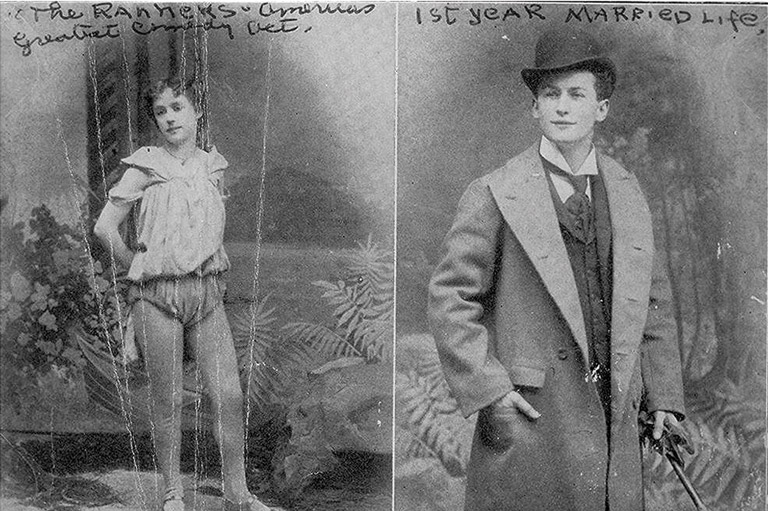
The troupe performed two shows in Yarmouth, which were both well attended. The locals were mystified by the show’s illusions, which included escapes, levitation, and mind reading.
At the next stop, in Saint John, New Brunswick, the troupe performed to modest houses. From there, Marco and the Houdinis departed for Halifax and a scheduled weeklong stand at the Academy of Music on Pleasant Street (now Barrington Street).
They arrived in mid-June to find the citizens of Halifax embracing summer, enjoying traditional activities like strawberry festivals and picnic excursions to McNab’s Island. Bands were performing at the public gardens and a sizeable nautical fair was about to begin.
What they didn’t realize, however, was that Professor Wormwood had already been up to his monkey business in the city, and left with a new attraction — baby monkeys which had been born during the tour. The pint-sized primates had won the crowds’ hearts, and Somerby promised that the babies would be trained as understudies, ensuring a future generation of monkey theatre.
Houdini and Marco realized they had their work cut out for them — it’s hard to upstage baby monkeys. Once again, Houdini came up with a publicity stunt. This time, it was a jailbreak from the police headquarters. Houdini was stripped, handcuffed, and locked in a jail cell by Police Chief Joseph O’Sullivan. Within minutes, a call came from the Queen Hotel. It was Houdini. He had escaped and was asking for the return of his clothes.
Unfortunately, the trained monkeys weren’t the troupe’s only competition for the public’s attention. Marco and the Houdinis had arrived in town on the eve of a federal election that saw a Nova Scotian prime minister, Sir Charles Tupper, running against Quebec’s Wilfrid Laurier. The election was the talk of Halifax, leaving little room in newspapers for editors to promote the upcoming shows of a visiting magic company.
With 7 uniquely curated newsletters to choose from, we have something for everyone.
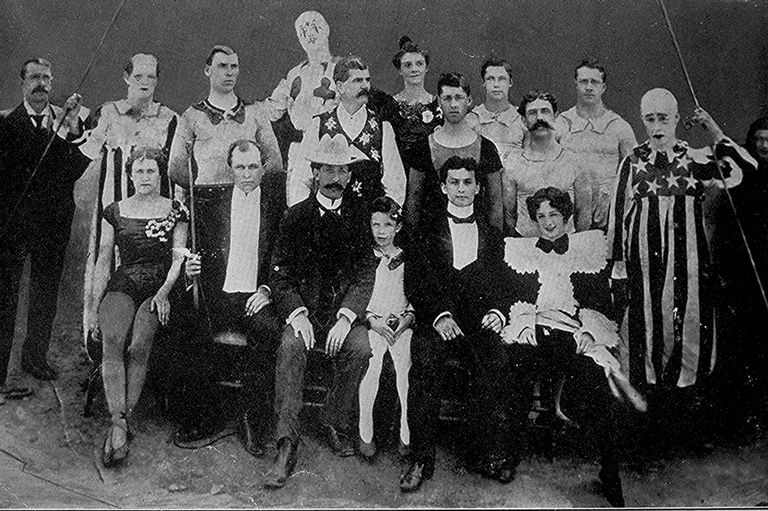
Yet both Halifax papers sent reporters to review the show on opening night on Monday, June 29. The Acadian gushed, “The trunk mystery has been done here before, but never so clever as by Harry Houdini.” The Halifax Herald also praised the performances, but reported, “Marco failed to draw a large audience.”
What had gone wrong? Where were the crowds? It was then that Marco and Houdini discovered an unfortunate coincidence. Just nine months earlier, a dubious magician with a very similar name, “Markos,” had caused quite a controversy at the same Halifax theatre. One of the lowlights of Markos’s appearance in Halifax included reneging on a promise to catch bullets bare-handed — even after four members of the 66th Batallion “Princess Louise Fusiliers” appeared onstage with their Snider rifles. Later in the week, an audience member attacked Markos onstage when a hypnotism challenge took a bad turn.
It seems that Haligonians simply assumed Marco was really Markos, returning to Halifax to make a quick score with another round of mischief and false advertising.
Before Houdini could clear up the misunderstanding, another crisis erupted. It turned out Marco the Magician wasn’t who he claimed to be either.
Marco — who billed himself as the “Monarch of Mystery from the Egyptian Hall” — was actually Michael Dooley, a local lad from Tower Road in Halifax.
Dooley had claimed in advertisements that this was his “first time” in Halifax. This was also stretching the truth — he had performed on the very same stage years before, as a member of the Egleston Opera Company.
Despite the positive reviews, the turnout for the second show was dreadful. At the third show, it seemed that debt collectors outnumbered the audience.
Faced with dwindling ticket sales and mounting bills, Dooley, a.k.a. Marco, realized his situation was hopeless. He cancelled the remaining dates of his week-long appearance and left Halifax the next morning on a steamship bound for Boston. Having lost his life savings bankrolling the failed tour, Dooley was forced to return to his regular job as an organist in Connecticut.
As for Harry and Bess Houdini, they suddenly found themselves abandoned and out of money in Halifax. They spent at least one uncomfortable night sleeping in a hallway before some caring citizens in Dartmouth offered to help the destitute couple regroup.
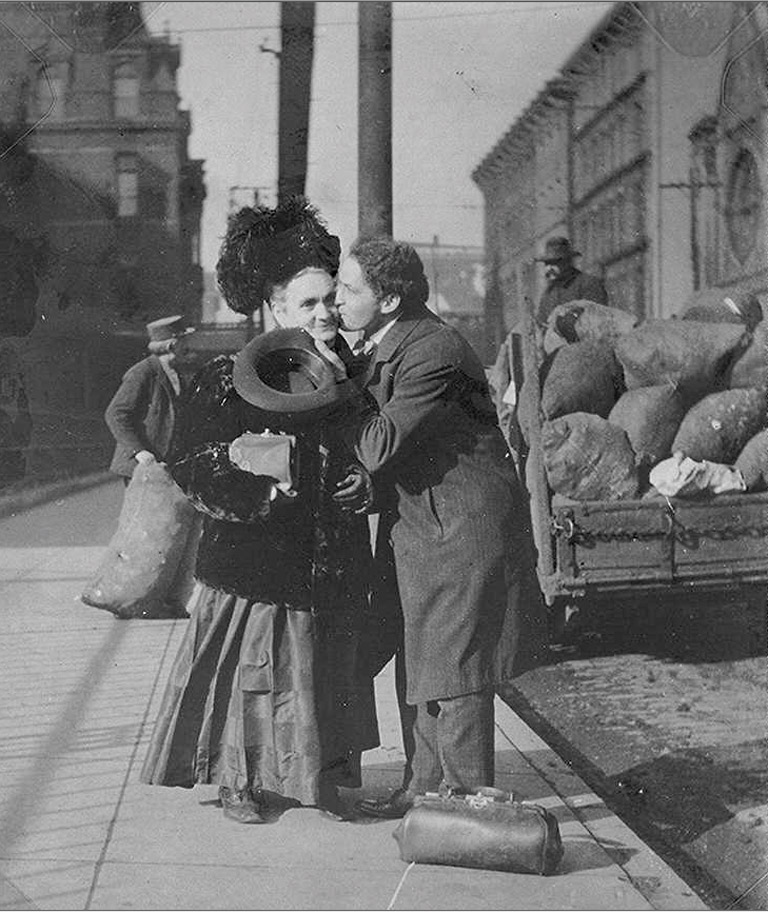
With a handful of Dooley’s props, the Houdinis organized a magic show at Dartmouth’s St. Peter’s Hall. It was this long-forgotten performance, on July 6, 1896, that marked the beginning of Harry Houdini’s international career as a headline entertainer. Audiences filled the theatre and thoroughly enjoyed the performance. The shows were held over for an extra day, with a matinee offered to meet the demand for the ten-cent tickets.
The Houdinis spent the rest of July and most of August performing sporadically in small towns throughout Nova Scotia and New Brunswick. Sometimes they crossed paths with their primate pals from the travelling monkey show; too often, Houdini shared his dressing room with the stale stench of monkeys.
The Houdinis eventually scraped together enough cash to return to New York, where poor finances forced the couple to move in with Houdini’s mother. Houdini was so crestfallen after his disastrous Maritime tour that he considered giving up show business. He even tried to sell his secrets to other magicians.
Thankfully, Houdini’s retirement from magic was short-lived. Less than four years later, he was an international sensation, setting attendance records throughout Europe.
In 1900, after a particularly difficult escape from a challenger’s handcuffs, Houdini was carried through the streets of Berlin by a jubilant crowd of theatre-goers. That night, feeling grateful for his success and fame, he wrote letters to some of the performers who had supported him in the lean years. One letter was sent to his old employer, “Marco the Magician.”
Dooley, a.k.a. “Marco,” was surprised and touched that his former assistant would even contact him, let alone thank him after the embarrassing 1896 Maritime tour. In a letter, Dooley replied: “Your letter expresses more gratitude to me for what little favor I may have done for you … it shows what I knew all along, that you have a good heart and it is in the right place.”
We hope you’ll help us continue to share fascinating stories about Canada’s past by making a donation to Canada’s History Society today.
We highlight our nation’s diverse past by telling stories that illuminate the people, places, and events that unite us as Canadians, and by making those stories accessible to everyone through our free online content.
We are a registered charity that depends on contributions from readers like you to share inspiring and informative stories with students and citizens of all ages — award-winning stories written by Canada’s top historians, authors, journalists, and history enthusiasts.
Any amount helps, or better yet, start a monthly donation today. Your support makes all the difference. Thank you!
Themes associated with this article
Advertisement
You might also like...
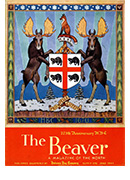
Canada’s History Archive, featuring The Beaver, is now available for your browsing and searching pleasure!

